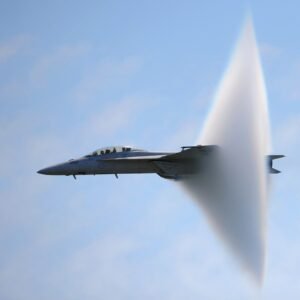I. Origin
The Sukhoi Su-57 Fighter Jet was developed by the Russian company Sukhoi, which is a subsidiary of the United Aircraft Corporation. The development of the Su-57 began in the 1990s, with the first prototype being unveiled in 2010. The Su-57 is designed to be a multirole fighter aircraft capable of air superiority and ground attack missions and incorporates advanced technologies such as stealth and supersonic cruising speed. The Su-57 is the first aircraft in Russia’s fifth-generation fighter program and is expected to replace the older Su-27 and MiG-29 fighter jets in the Russian Air Force.
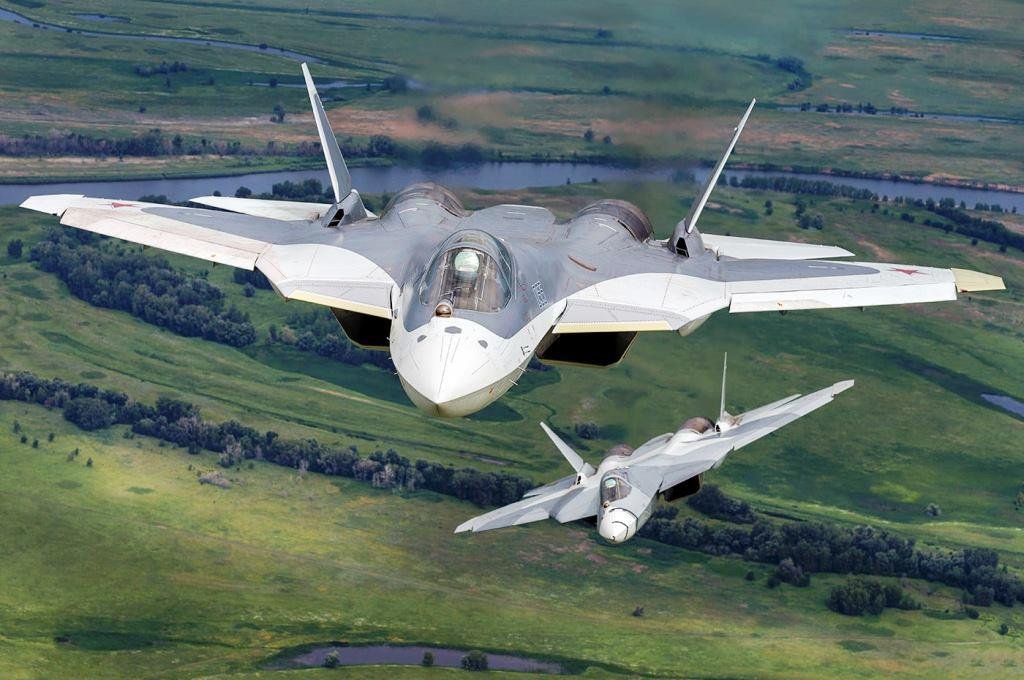
II. Development and Design of The Sukhoi Su-57 Fighter Jet
The development of the Sukhoi Su-57 Fighter Jet began in the 1990s as part of Russia’s fifth-generation fighter program, which aimed to create a new generation of fighter aircraft capable of competing with the advanced fighter jets being developed by other countries, such as the US F-22 Raptor and the F-35 Lightning II.
The design of the Su-57 was based on the earlier Sukhoi Su-47 Berkut experimental aircraft, which incorporated forward-swept wings and other advanced features. However, the Su-57 features a more conventional design with swept-back wings and other advanced technologies.
One of the most notable features of the Sukhoi Su-57 Fighter Jet is its stealth technology, which is designed to reduce its radar cross-section and make it difficult to detect by enemy radar systems. The fighter jet’s design incorporates radar-absorbent materials and shapes, as well as other advanced features, to achieve this goal.
The Sukhoi Su-57 Fighter Jet is also designed to be highly maneuverable and is equipped with advanced avionics and sensor fusion capabilities that allow it to operate in any environment and in any weather condition. The fighter jet is equipped with two Izdeliye 30 turbofan engines, which provide it with a top speed of Mach 2.25 and a range of over 3,500 km.

A. General Specification of The Sukhoi Su-57 Fighter Jet
| Specification | Value |
| Crew | 1 or 2 |
| Length | 19.8 m (65 ft) |
| Wingspan | 13.95 m (45.8 ft) |
| Height | 4.74 m (15.6 ft) |
| Wing area | 78.8 m² (849 sq ft) |
| Empty weight | 24,000 kg (53,000 lb) |
| Loaded weight | 34,000 kg (75,000 lb) |
| Maximum takeoff weight | 37,000 kg (81,000 lb) |
| Powerplant | 2 × Saturn Izdeliye 30 turbofans |
| Thrust | 2 × 107.8 kN (24,000 lbf) each |
| Maximum speed | Mach 2.25 (2,700 km/h, 1,700 mph) |
| Range | 3,500 km (2,200 mi) |
| Service ceiling | 20,000 m (66,000 ft) |
| Avionics | Active phased array radar, advanced avionics |
| First flight | 2010 |
B. Armaments
- Air-to-Air Missiles: The Su-57 can carry a variety of air-to-air missiles, including the R-77 medium-range air-to-air missile, the R-73 short-range air-to-air missile, and the K-77 long-range air-to-air missile. These missiles are designed to engage enemy aircraft at different ranges and altitudes.
- Air-to-Ground Missiles: The Su-57 can carry a range of air-to-ground missiles, including the Kh-38M precision-guided missile and the Kh-59MK2 standoff missile. These missiles are designed to engage ground targets such as enemy vehicles, buildings, and other structures.
- Guided Bombs: The Su-57 can carry guided bombs such as the KAB-500S-E laser-guided bomb and the KAB-250LG-E glide bomb. These bombs are designed to be dropped from high altitudes and can be guided to their targets with a high degree of accuracy.
- Cannon: The Su-57 is equipped with a 30mm GSh-30-1 cannon, which is capable of firing up to 1,500 rounds per minute. The cannon is primarily used for engaging ground targets, but can also be used against enemy aircraft in close-range combat.
- Electronic Warfare Systems: The Su-57 is equipped with advanced electronic warfare systems, including jamming equipment and decoys, which allow it to disrupt enemy communications and radar systems.
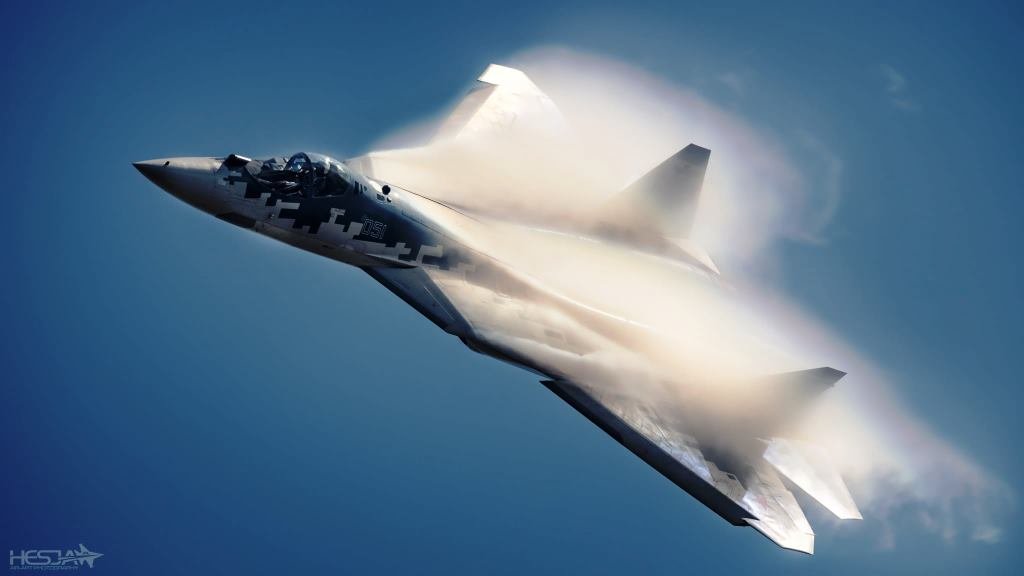
III. Sukhoi Su-57 Fighter Jet:- Features and Capabilities
The Sukhoi Su-57 fighter jet is designed to be a multi-role aircraft capable of air superiority and ground attack missions. It incorporates several advanced features and capabilities that make it a formidable opponent in combat situations.
- Stealth Technology: The Su-57’s design incorporates radar-absorbent materials and shapes that reduce its radar cross-section, making it nearly invisible to radar. Additionally, the Su-57’s engines have a reduced infrared signature, further enhancing its stealth capabilities.
- Advanced Avionics: The Su-57 is equipped with a digital fly-by-wire control system and advanced avionics that provide the pilot with enhanced situational awareness and control over the aircraft. The fighter jet is also equipped with an active phased array radar, which provides it with superior tracking capabilities.
- Sensor Fusion Capabilities: The Su-57’s advanced sensor fusion capabilities allow it to integrate information from multiple sources, including radar, electronic warfare systems, and other sensors, to provide the pilot with a comprehensive situational awareness picture.
- Supersonic Speed: The Su-57 is capable of supersonic cruising speeds, with a top speed of Mach 2.25. This allows the fighter jet to quickly respond to threats and maneuver effectively in combat situations.
- Weapons System: The Su-57 is equipped with air-to-air missiles, air-to-ground missiles, and guided bombs, making it a formidable opponent in both air-to-air and air-to-ground combat. The fighter jet is also equipped with advanced electronic warfare capabilities, allowing it to jam enemy radar systems and disrupt communications.
- Maneuverability: The Su-57 is designed to be highly maneuverable, with advanced thrust vectoring capabilities that allow it to perform complex aerial maneuvers and evade enemy missiles.
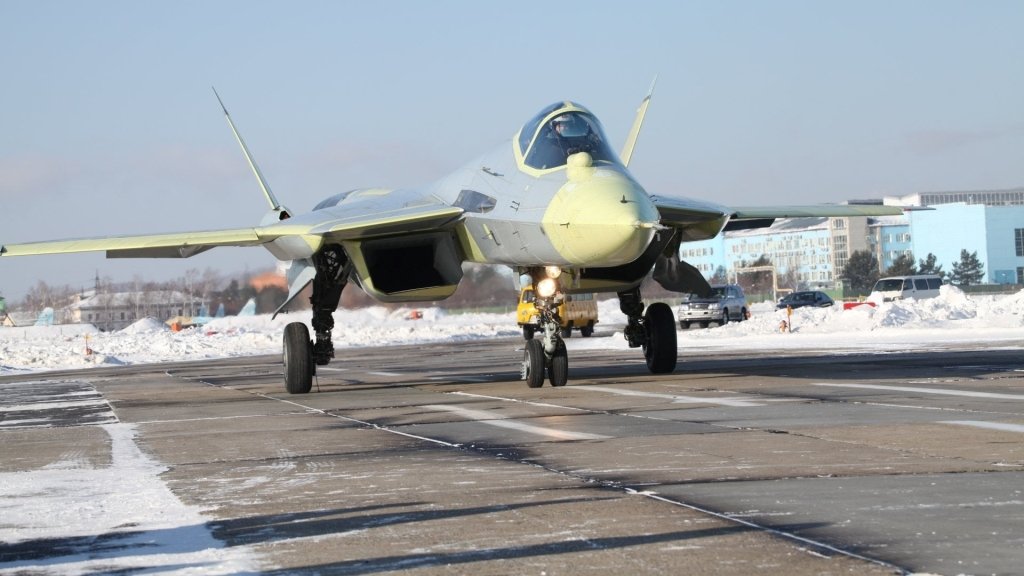
IV. Variants
- Su-57 fighter jet – This is the standard version of the aircraft that is designed for air-to-air and air-to-ground combat. It is equipped with advanced avionics, and active phased array radar, and can carry a variety of missiles and guided bombs.
- Su-57E export version – This variant is specifically designed for export customers and is a more affordable option compared to the standard Su-57. It has fewer advanced features and is equipped with a less powerful engine. However, it still retains many of the key features of the Su-57, including its stealth capabilities and advanced avionics.
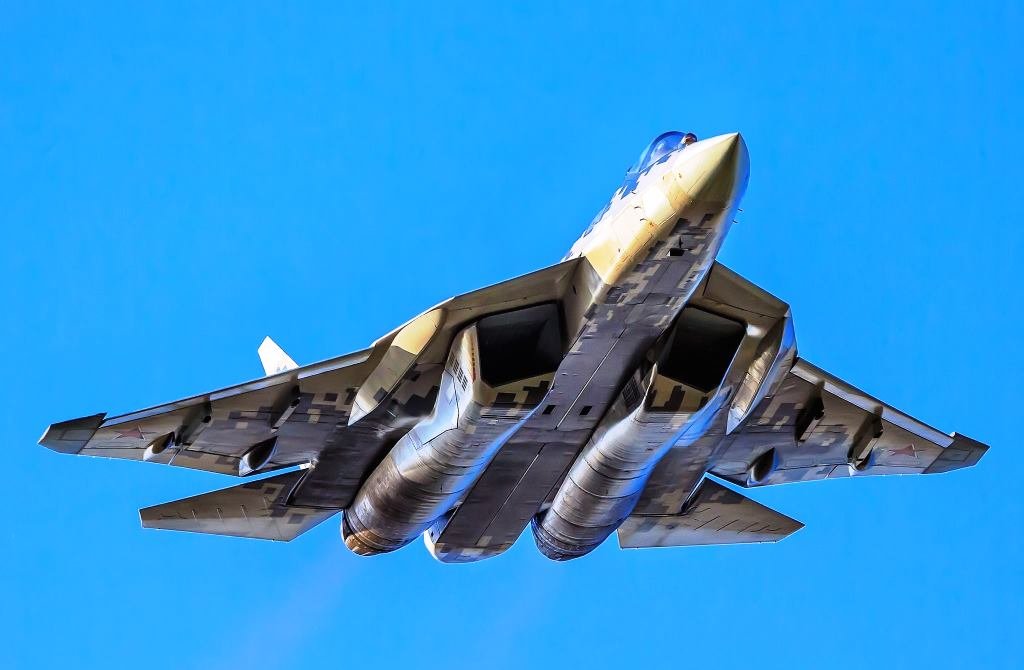
V. Prototypes
- T-50 – This was the first prototype of the Su-57 and made its maiden flight in January 2010. The T-50 was used to test the aircraft’s basic flight characteristics, including stability, handling, and performance.
- T-50-2 – The second prototype of the Su-57 was built in 2011 and was used to test the aircraft’s avionics, sensors, and weapons systems.
- T-50-3 – The third prototype was built in 2012 and was used to test the aircraft’s stealth capabilities and advanced engines.
- T-50-4 – The fourth prototype was built in 2013 and was used to test the aircraft’s weapons systems and to refine the design for production.
- Su-57-01 – This is the first production-standard Su-57, which made its maiden flight in December 2017. It is the first Su-57 to be equipped with the advanced Izdeliye 30 engines and is currently undergoing testing before entering service with the Russian Air Force.

VI. Comparison Between The Sukhoi Su-57, The Lockheed Martin F-35, and The Lockheed Martin F-22 Raptor
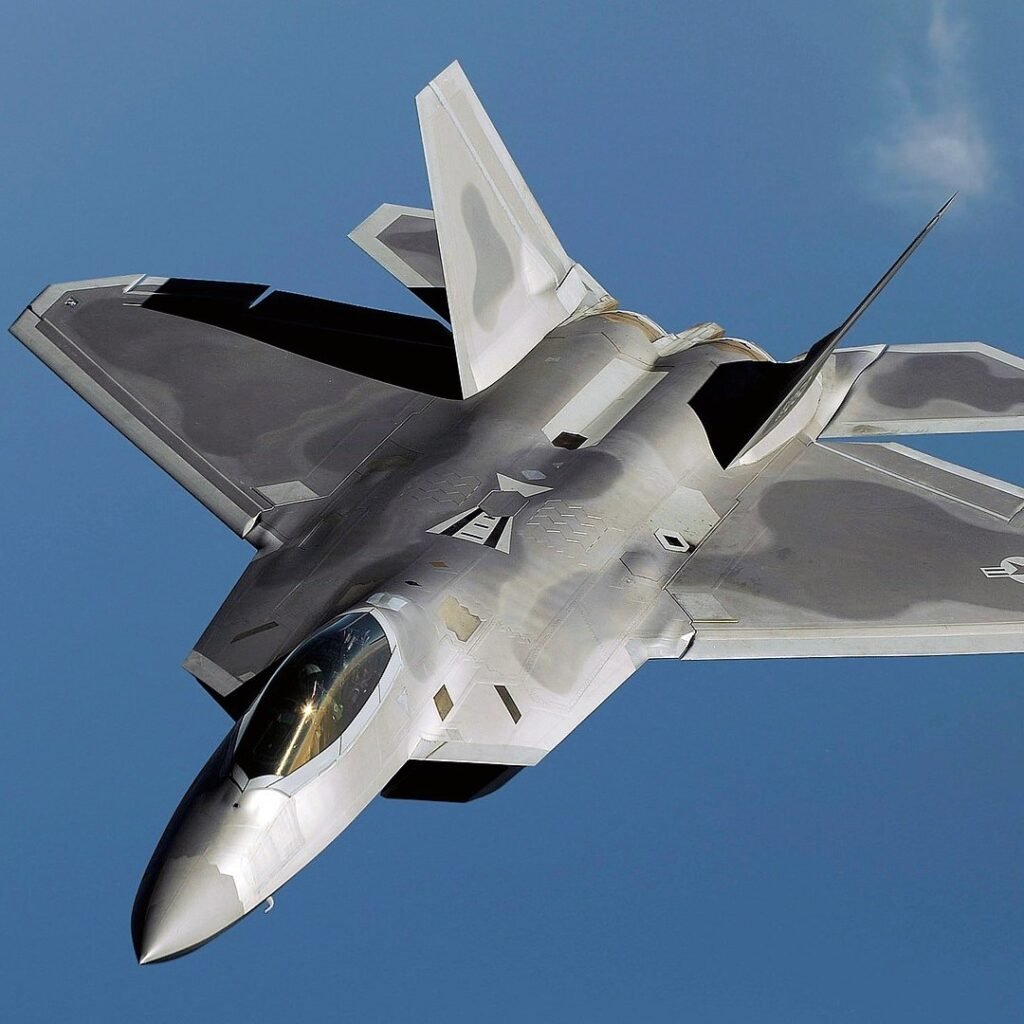
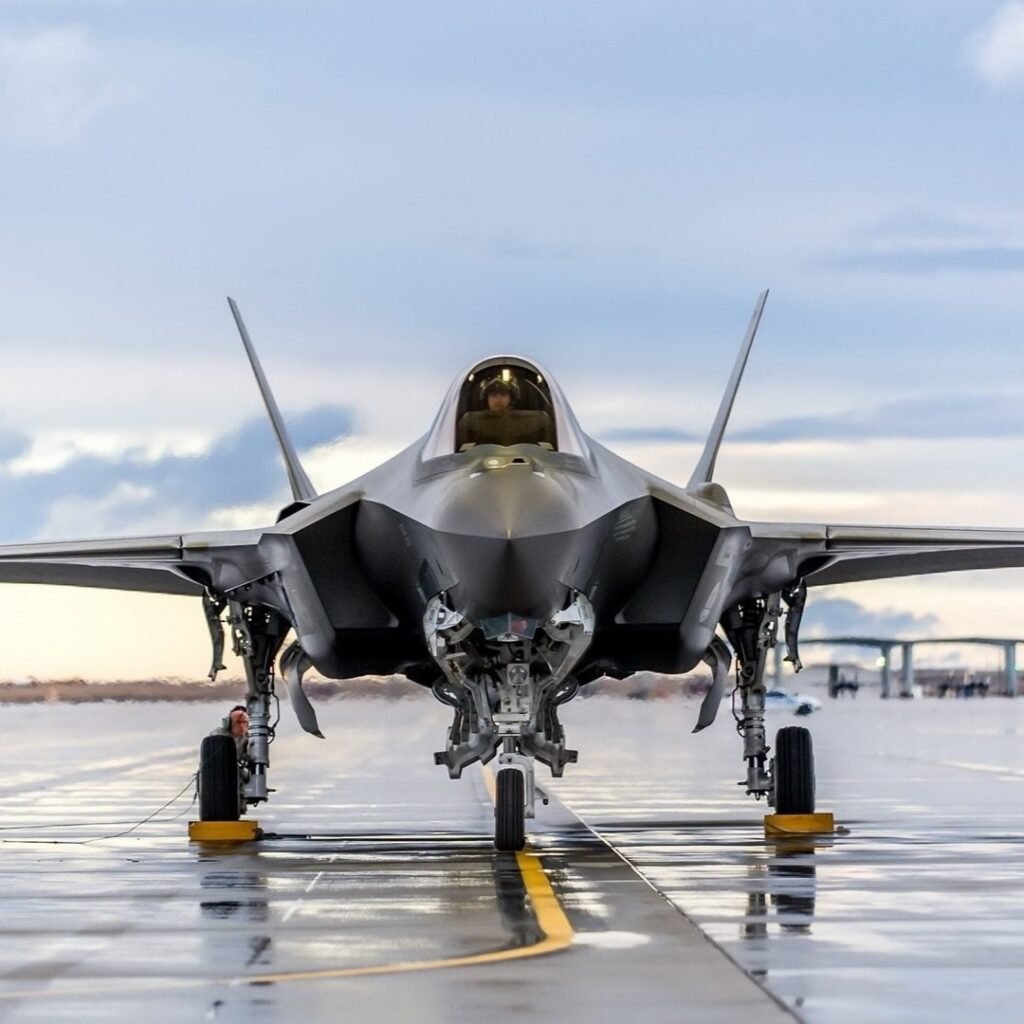
| Specification | Sukhoi Su-57 | Lockheed Martin F-35 | Lockheed Martin F-22 Raptor |
| Crew | 1 or 2 | 1 | 1 |
| Length | 19.8 m | 15.7 m | 18.92 m |
| Wingspan | 13.95 m | 10.7 m | 13.56 m |
| Height | 4.74 m | 4.6 m | 5.08 m |
| Wing area | 78.8 m² | 42.7 m² | 78.04 m² |
| Empty weight | 24,000 kg | 13,290 kg | 19,700 kg |
| Loaded weight | 34,000 kg | 27,000 kg | 38,000 kg |
| Maximum takeoff weight | 37,000 kg | 31,800 kg | 38,000 kg |
| Powerplant | 2 × Saturn Izdeliye 30 turbofans | 1 × Pratt & Whitney F135 turbofan | 2 × Pratt & Whitney F119 turbofans |
| Thrust | 2 × 107.8 kN each | 1 × 191 kN | 2 × 156 kN each |
| Maximum speed | Mach 2.25 | Mach 1.6 | Mach 2.25+ |
| Range | 3,500 km | 2,200 km | 2,960 km |
| Service ceiling | 20,000 m | 15,000 m | 20,000 m |
| Armament | Air-to-air and air-to-ground missiles, guided bombs | Air-to-air and air-to-ground missiles, guided bombs | Air-to-air and air-to-ground missiles, guided bombs |
| Avionics | Active phased array radar, advanced avionics | Active electronically scanned array radar, advanced avionics | Active electronically scanned array radar, advanced avionics |
Read More:-Boeing F/A-18 Super Hornet and JAS 39 Gripen Fighter Jet.











